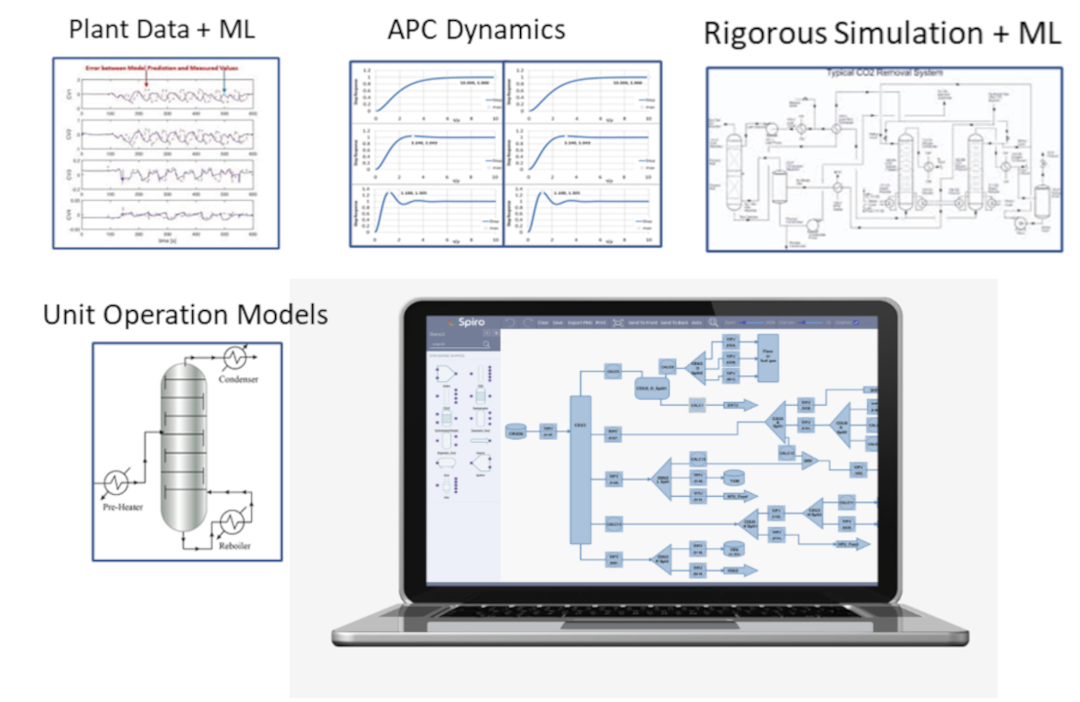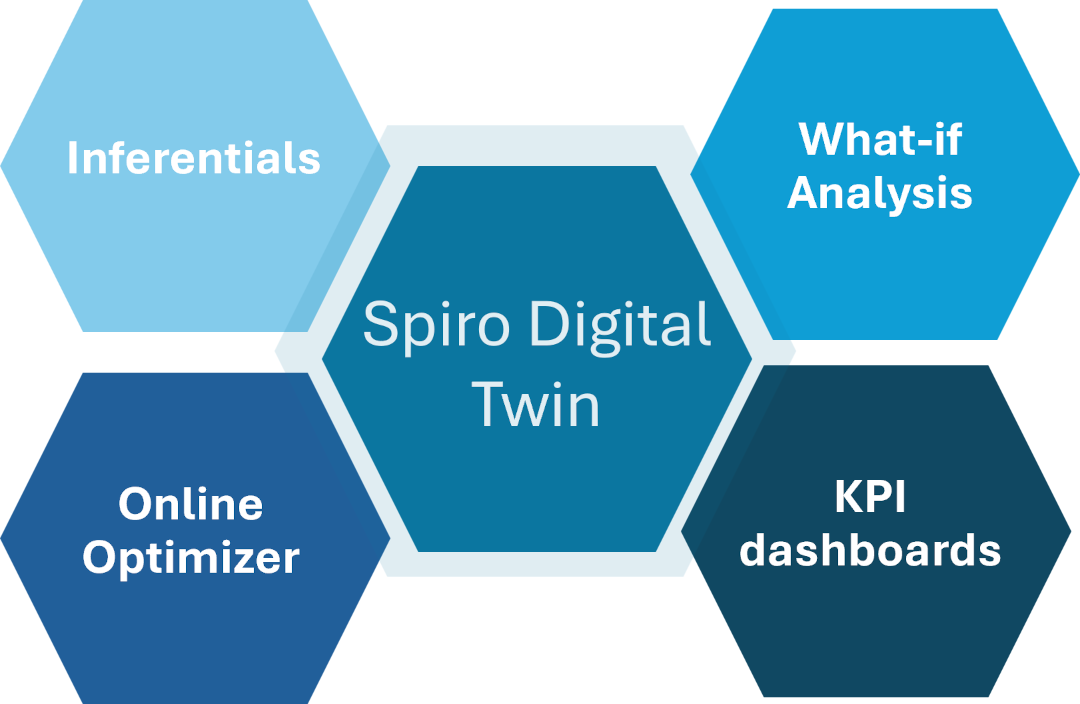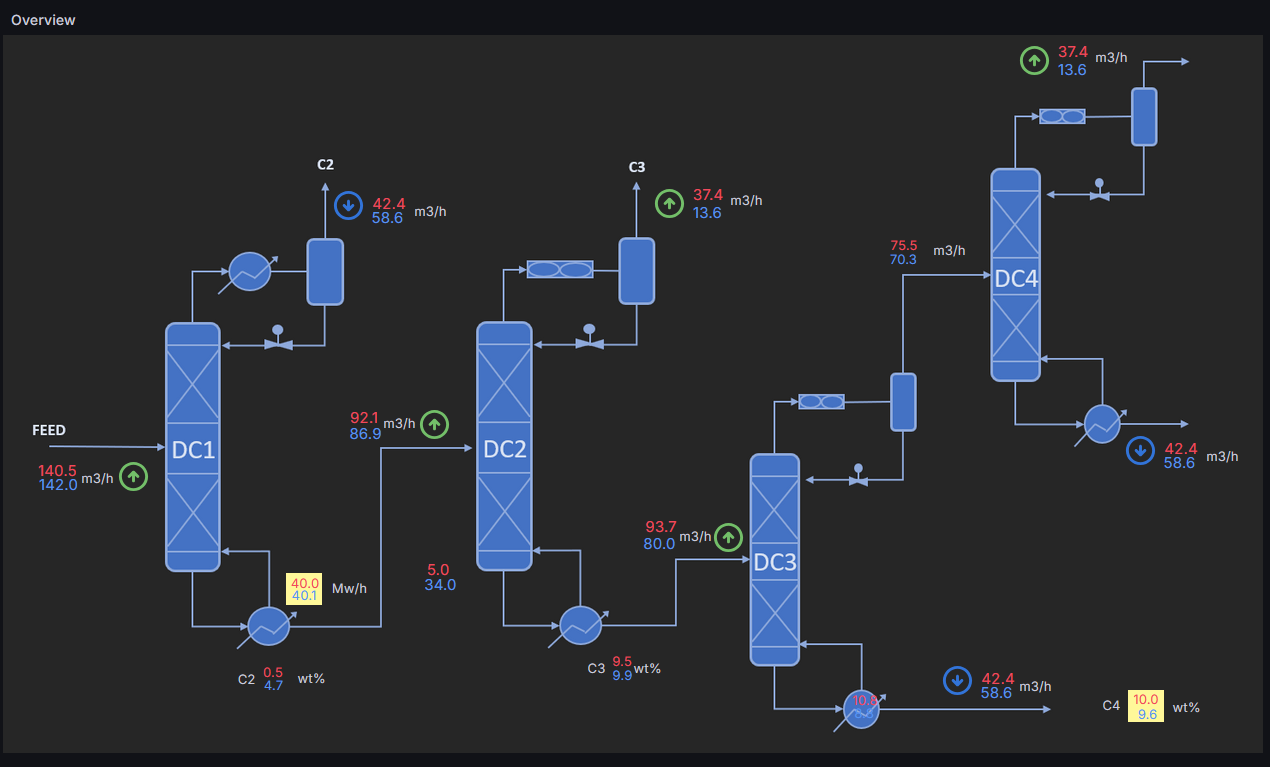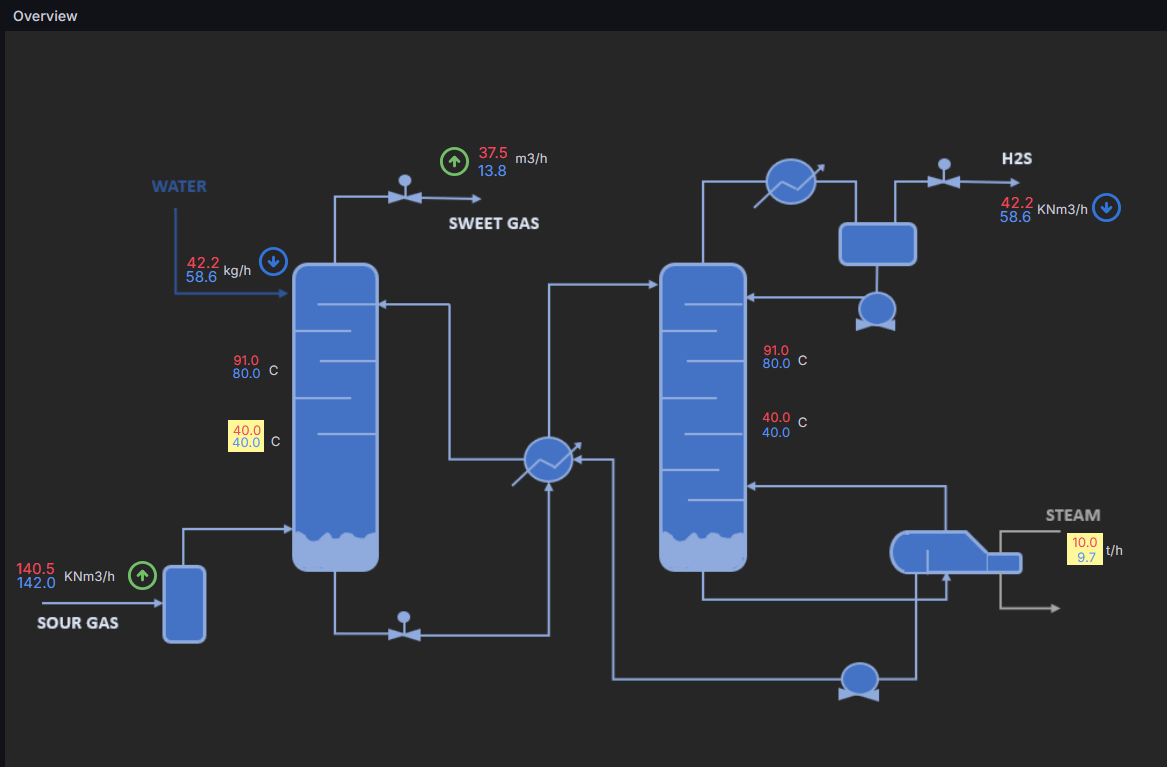NGL and Gas Processing
Optimizing Natural Gas Processing with Spiro MPC and Spiro Digital Twin.
NGL and Gas Processing
Optimizing Natural Gas Processing with Spiro MPC and Spiro Digital Twin.
The Natural Gas Liquids (NGL) and gas processing industry focuses on refining raw natural gas into usable dry gas and extracting valuable byproducts like ethane, propane, and butane. These NGLs are essential in industries such as petrochemicals, plastics, and energy generation. The market for NGLs is forecasted to grow from $20.9 billion in 2023 to $32.6 billion by 2032, driven by increasing demand for cleaner fuels, industrial applications, and government support. Key consumers include the industrial sector, where NGLs are used for manufacturing, electricity generation, and residential heating. North America, with its strong shale gas sector, is expected to dominate the market, particularly for ethane, which is widely used in petrochemical production.
Spiro’s MPC and Digital Twin enable operators to increase NGL train throughput and maximize the yield of their most valuable liquid products. These tools provide a dynamic, AI-augmented approach to manage the challenges of NGL recovery, boost operating margins, and reduce environmental impact. Our patented cooperative control technology enables optimization of interactive process units, even when they are geographically dispersed and seperated by pipeline networks.
Distributed Cooperative Control
In natural gas distribution networks, processes are often separated both geographically and operationally, which complicates optimization. Spiro’s patented cooperative control technology integrates operations across multiple gas processing trains, and even downstream consumer units like olefins plants, ensuring that disruptions are anticipated and flaring is minimized. Cooperative distributed control optimizes interactions between separate units, reducing inefficiencies caused by operational silos.


Spiro MPC
Spiro MPC provides real-time multivariable control for natural gas processing. Our embedded MPC technology integrates seamlessly with your existing DCS or SCADA, it is simple to deploy and is designed to be maintained by your on-site technicians without the need for extensive APC training.
- Optimization of NGL recovery improves profitability by maximizing valuable by-products such as ethane, propane, and butane.
- Reducing operational inefficiencies directly leads to a reduction in environmental emissions, aligning operations with sustainability goals.
Spiro Digital Twin
Spiro Digital Twin leverages AI-enhanced models to simulate gas train operation, offering several valuable applications.
- Accurate inferential process stream properties, which can be integrated as controlled variables in MPC applications.
- KPI dashboards that deliver key insights into process operations, identifying bottlenecks, efficiencies, and emissions.
- What-if analysis and real-time optimization enable operators to quickly respond to feed losses or downstream consumer disruptions, allowing for smooth reconfiguration of the unit to manage disturbances effectively.


Use Case – NGL Recovery and Economic Optimization
NGL train operators typically face the challenge of meeting multiple operational objectives simultaneously. With limited feed storage and linepack flexibility, they must process all available feedstock efficiently. When product storage is constrained, they need to quickly respond to downstream trips or outages, rerouting products and stabilizing the unit at new rates. Rapid adjustments to feedstock quality changes are also crucial, requiring re-optimization of the process to accommodate new feed compositions. In cases where multiple interacting trains are involved, operators must optimize overall capacity by utilizing the most efficient units or balancing feed across trains. Additionally, maintaining product specifications while maximizing the recovery of valuable liquids within specification limits is essential. Spiro’s solutions are tailored to support these objectives, drawing on decades of experience in gas processing plant optimization.
Use Case – Amine Unit Optimization
The amine unit plays a critical role in removing hydrogen sulfide (H2S) and carbon dioxide (CO2) from sour gas, ensuring the quality of sweet gas. As the regenerator column in the amine unit typically consumes the most low-pressure steam on site, optimizing steam consumption—while maintaining lean amine quality—can provide significant benefits.
An AI-augmented digital model of the amine unit can infer lean amine quality based on real-time operating conditions and process data. This inferential variable can be integrated into an MPC application to optimize amine circulation rates and regenerator steam usage. Additional advantages include automated responses to changes in gas rates and feed composition, reducing the risk of H2S and CO2 breakthrough, and preventing foaming conditions.


Use Case – Multi-Site Real-Time Optimization
By leveraging integrated historian data for multi-site operations linked by a pipeline network, Spiro Digital Twin unifies detailed process models across locations, forming a comprehensive optimization framework. This solution uses real-time data reconciliation for accurate mass balance calculations and optimized resource management throughout the network. It adjusts processes dynamically in response to changes in NGL capacity or pipeline disruptions, ensuring the most efficient trains are utilized for processing.
Unlike traditional linear planning, digital twins provide a dynamic, integrated approach. Traditional models, constrained by static data and siloed operations, struggle with real-time adjustments, leading to inefficiencies. In contrast, digital twins enable real-time monitoring and optimization, allowing rapid responses to market changes, supply disruptions, and the simulation of multiple scenarios to seize new opportunities.
Spiro MPC and Spiro Digital Twin provide cutting-edge solutions to the complex challenges of natural gas processing. Through advanced predictive control and dynamic modeling, these tools offer real-time optimization, increased NGL recovery, and improved coordination across distributed operations. The result is enhanced profitability, reduced environmental impact, and a more resilient and efficient natural gas processing operation. As the industry continues to evolve, Spiro Control’s solutions will be essential for companies seeking to maintain competitiveness and meet sustainability targets.
Contact Us
Let us know how we can help!
Email:
info@spirocontrol.com
Or schedule a live demo
Use the calendar below to schedule a meeting with a member of our team.
Or schedule a live demo
Use the calendar below to schedule a meeting with a member of our team.

Thornton Science Park, Cheshire, CH2 4NU, UK
info@spirocontrol.com
Solutions
Products & Services
Industries
News & Updates
Company
Contact
